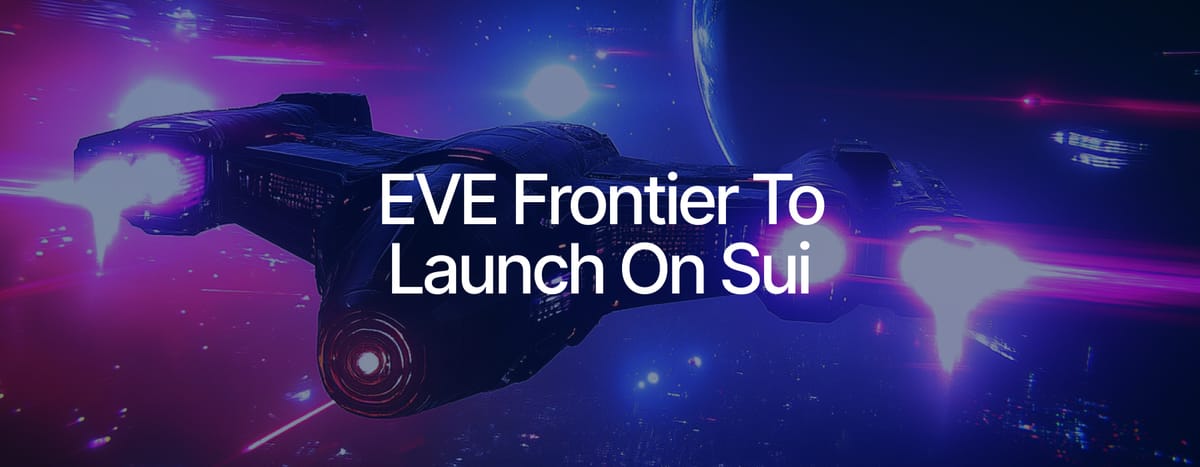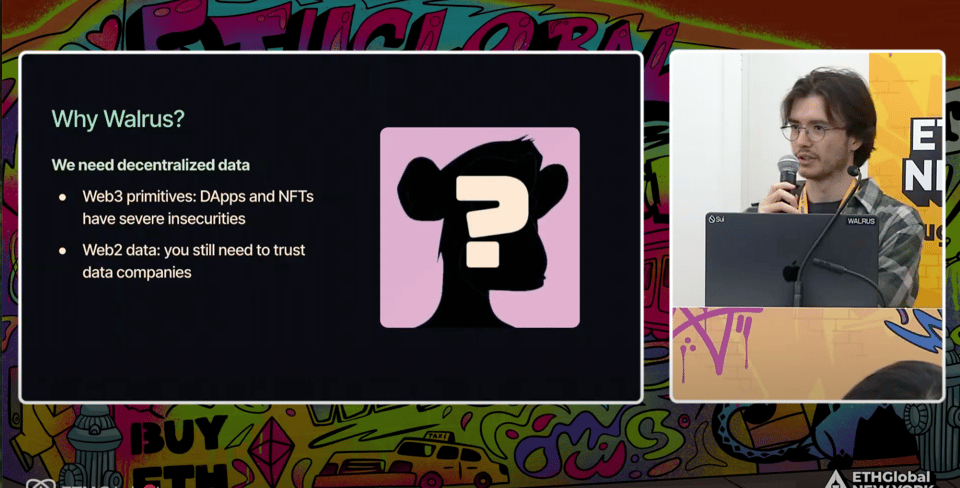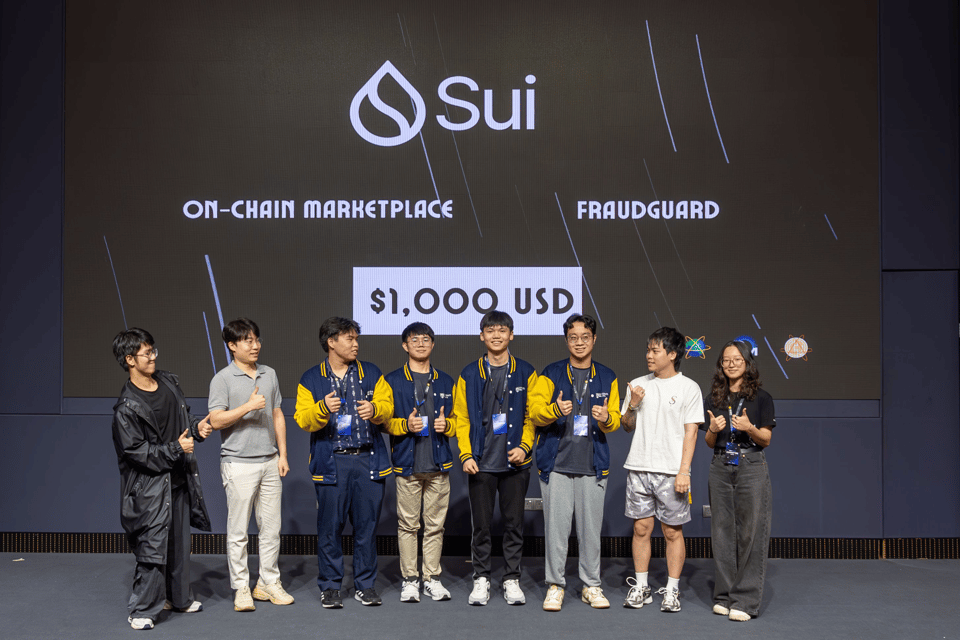Sui Developer Network Monthly #13
Hiya!
You’re getting this message because you previously signed up for our newsletter.
It’s been a while, but we’re very excited to start sending out monthly updates again. Every month, we’ll send you exciting news about Sui Stack features and technologies, updates from around the community, and even a monthly coding challenge.
But before we do any of that, we wanted to confirm you still want to hear from us!
If you would like to continue receiving our updates, please respond to this email with a “yes”.
Onward!
🌊 Sui Stack News
EVE Frontier to Launch on Sui, Powering the Next Generation of Player-Driven Universes
CCP Games, the creator of EVE Online, announces that its new space survival MMO, EVE Frontier, will be built on Sui! Designed to support a vast, player-driven economy and an ever-expanding universe, Sui’s object-centric architecture provides the ideal foundation for modeling EVE Frontier’s tens of thousands of star systems, countless player-built ships, and evolving infrastructure.
By combining CCP Games’ two decades of experience in emergent sandbox gameplay with Sui’s high-performance blockchain technology, EVE Frontier will bring a new level of scale, composability, and player empowerment to MMO design. Sui’s architecture, built for scalability and sub-second finality, enables billions of player interactions and assets to coexist in a living, persistent world. Meanwhile, Sui-native primitives and tools make onboarding, secure data storage, and access seamless for players.
Read more here:

EVE Frontier to Launch on Sui, Powering the Next Generation of Player-Driven Universes
CCP Games brings its new space survival MMO to Sui, leveraging the blockchain’s scalable architecture and object-centric design to power an emergent, player-driven universe.
We're happy to announce three new and improved ways to interact with SUI
While the JSON-RPC interface has served us well, it's starting to show the limitations of the protocol.
Let's say you want to find every transaction that touched an object. Depending on your query, the existing JSON-RPC interface may not be expressive enough to fetch all that data in a single call.
That's where the new GraphQL for Sui RPC interface can help. Now, instead of having to make multiple calls, you can get paginated results from multiple tables, all in a single request.
It allows you to combine queries and specify the relevant data you want to have returned for it, making complex queries like "find all transactions that touched an object" as simple as:
query ($objectID: SuiAddress!) {
transactions(filter: {affectedObject: $objectID}) {
nodes {
sender {
address
}
digest
effects {
objectChanges {
nodes {
address
}
}
}
}
}
}Now, let's say you want to achieve better performance.
The text-based nature of JSON limits the existing JSON interface, resulting in higher latency for parsing and transporting data.
That's when you'll want to use the new gRPC (beta) interface. gRPC is a high-performance protocol that uses Protocol Buffers for efficient data serialization and HTTP/2 for transport, significantly reducing latency and bandwidth usage. This makes it a good match for Defi, transaction & object explorers, or other applications where every millisecond counts.
The simplest way to experiment with gRPC is by using grpcurl, which allows you to query and experiment with the API from the command line, like getting the events and effects details of a particular transaction:
$ grpcurl -d '{ "digest": "J4NvV5iQZQFm1xKPYv9ffDCCPW6cZ4yFKsCqFUiDX5L4" }' <full node URL:port> sui.rpc.v2beta2.LedgerService/GetTransactionDon't worry if that doesn't click just yet; we've put together an overview on this page for you to try out.
And finally, if you're looking to process specific events, increase retention periods, or use specialized databases, you can create a custom indexer to tailor-fit your needs.
We provide a powerful Rust framework for building high-performance, custom blockchain indexers on Sui. Instead of querying Sui's APIs repeatedly or building complex filtering logic, you process the raw blockchain data once and store it in your preferred format.

If you want to learn more about this, please take a look at our Custom Indexing Framework docs here and check out this guide to set up your own custom indexer.
Oh, and speaking of docs…
Now, on the right side of every docs page below the table of contents, you can rate a docs page 👍 or 👎, add comments, screenshots, and even leave your email if you'd like us to follow up with you regarding your feedback.
This feedback helps our team identify which pages are currently the most useful to developers and which need improvement so we can prioritize revisions accordingly.
Over the remainder of the year, the docs team has several big updates planned, including a revised navigation structure, refreshed CSS styling, and broader improvements to accessibility, clarity, and usability.
We're excited about that, but we're also happy about all the cool work happening in the community.
🎉 Community Updates
Nothing beats having a great example to work from, so every month we pick a project we enjoyed going through.
This month, we've been looking at the contract code for Suilend, a Lending protocol:
GitHub - suilend/suilend: Money market on the Sui blockchain
Money market on the Sui blockchain. Contribute to suilend/suilend development by creating an account on GitHub.
This repository showcases a CI/CD build pipeline, Move contracts, and documentation of the math involved in building a lending protocol!
We always love to see the projects people develop on GitHub or at hackathons.
We met many of you at ETHGlobal NYC and worked with 20 teams on building hacks, apps, and dapps on Walrus.

Here are a couple of submissions we really liked:
ColdCache, a decentralized video game marketplace: This project serves as an open-source example of the Sui Stack powering a familiar web2 product (Steam). [submission]
Git-lfs-walrus, a Git LFS adapter for storing large files on Walrus: This project showcases a seamless integration of Walrus and git. [submission]
Don't stress if you missed out; you can watch a replay of Daniel Leavitt's workshop here. That wasn't all we did, though; we also attended DEVMatch.
320 engineering students showed up in Malaysia for DEVMatch Hackathon!
The energy was electric. 86 projects were submitted, with 50 focusing on Sui and 12 opting to ride the waves with Walrus.

It was no surprise to see lots of student interest in combining Web3 with AI. For example, one of the entries builds a fraud detection system for NFT marketplaces using AI. Thank you all for joining us!
We love seeing what you code so much that we're giving you another chance to show off your skills.
👩🏽💻 October Code Challenge
Given an array, arr, representing the positions of monsters along a straight line, and an integer, d, representing the minimum safe distance required between any two monsters, write a function to determine if all monsters are at least d units apart. If not, return the smallest distance found between any two monsters. If all monsters are safely spaced, return -1.
Bonus points if you use https://www.playmove.dev/ to code this in Move!
Examples:
let monsters = [3, 8, 10, 15];
let d = 6;
minMonsterDistance(monsters, d)
> 2
minMonsterDistance([5, 9, 14, 18], 4)
> -1To submit your answer, reply to this email with a link to your solution or share it on x with the hashtag #sui_dev_code.
That’s all for this month’s updates, but here are a few ways you can stay up-to-date with us.
If you’re new to Sui, you’ll like our “Get started developing on Sui guide.” It was made with love, just for you.
And if you want more hands-on learning, you can meet us at any of these upcoming events:
Oct 24th-26th: Cal Hacks 12.0 in San Francisco
Oct 25th: Build on Sui: Weekend Move Workshop in Tokyo
Nov 03rd: Sui Onboard Hsinchu in Taiwan